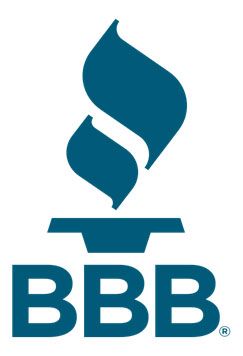Help Small Business Banking Clients Fight Card Fraud Using Technology
by Karla Wilson
According to Worldpay, card fraud is a $9.5 billion problem in the United States, and with the introduction of EMV technology and the resulting shift in liability from issuing financial institutions to merchants, much of that burden is being thrust upon your small business banking clients.
Just a few short years ago, the majority of card fraud was the liability of the financial institution. Today, that has changed. Merchants are now liable for 55 to 60 percent of all card fraud—and that figure is growing each year. Small businesses are quickly realizing they need to proactively fight fraud, but many are unsure of how, too busy to get mired in the details and/or unaware of available solutions to help.
Fortunately, as your small business banking clients’ trusted advisor, there is something you can do to help. Taking an active role in understanding available fraud‐fighting solutions and educating merchants about their availability will go a long way to helping you attract and retain more of this high‐value segment.
Not all merchant services solution providers are equal when it comes to the sophistication of their ability to proactively detect and prevent fraud. Traditionally, merchants have relied on complex—and cumbersome—rules to detect fraud and red‐flag transactions. There are two main problems with this method.
First, it’s reactive, not proactive. A merchant needs to experience fraud first before it can stop subsequent attacks via a rule. Second, it tends to be less customized to the consumer using the card. For example, if a merchant creates a fraud detection rule that a certain number of attempts to buy gas in a 24‐hour period triggers a decline, inevitably someone who drives long distances for a living may encounter an unusual—and highly annoying—number of false positives, souring the customer´s experience with the transaction.
Fraud Detection and Prevention for the Digital Age
With the introduction of machine learning, however, fraud detection and prevention has moved into the 21st century. Machine learning involves highly sophisticated, computer‐driven analyses of available transaction data to detect trends and then apply them across the board to like scenarios. Applying machine learning techniques has meant as much as a 99 percent reduction in the number of rules needed to detect and prevent fraud.
But, once again, not all providers are equal. Aside from the importance of the back‐end technology and sophisticated algorithms needed to thoroughly analyze data and apply findings accurately, the amount of transaction data available to analyze is extremely important to the accuracy of the analysis. Your merchant services partner matters.
Financial institutions should seek a partner that can offer merchants not only state‐of‐art machine learning capabilities, but access to a large database of transactional data to accurately identify anomalies on a grand scale and more important, possess the ability to apply findings to accurately and proactively prevent future attacks. With a large enough pool of merchant transaction data and machine learning capabilities, your processor will be able to apply learnings from fraud at one retailer, for example, to spot similar attempted attacks on another—before any losses are incurred.
The introduction of EMV‐enabled cards in the U.S. is still in its relative infancy, so financial institutions, merchants and consumers are still adjusting. According to Visa, 68 percent of merchants currently possess the ability to accept EMV‐enabled cards and as the remaining merchants continue to migrate, we should begin to see incidents of card‐present fraud decline. But, with EMV acceptance comes a continued shift in fraud liability from financial institutions to merchants. Preparing your small business banking clients now through education and value‐added fraud detection and prevention solutions is a win‐win for you and your merchant clients.

Karla Wilson is Area Vice President at Retriever Payment Systems, an ACB Associate Member. She may be reached at
karla@localccprocessing.com
The post first appeared on Retriever, Advantage Merchant Services.

